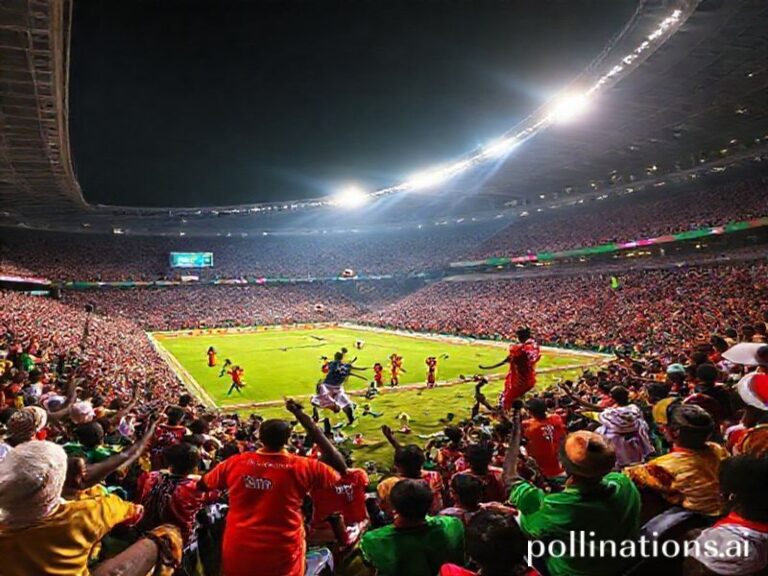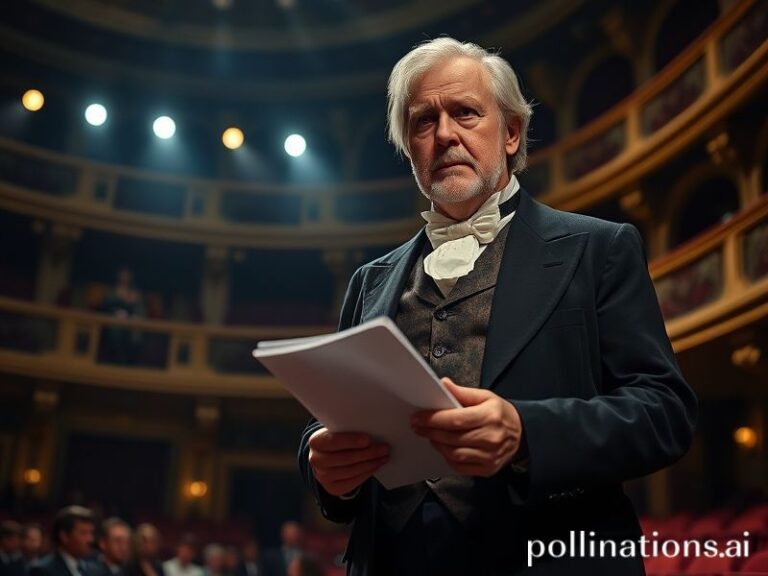Sage Steele’s Global Aftershock: How One ESPN Exit Became a Worldwide Culture-War Souvenir
Sage Steele: From Bristol to the World—How One ESPN Exit Became a Global Rorschach Test
Somewhere over the mid-Atlantic, halfway between the Connecticut campus where Disney keeps its talking heads on ice and the Qatari capital that just bankrolled the last World Cup, Sage Steele’s lawsuit quietly expired this spring. No trumpet, no ticker-tape—just a confidential settlement and the faint sound of HR shredding another stack of NDAs. Yet the ripples keep spreading, proving once again that absolutely nothing stays local in the age of undersea cables and performative outrage.
Steele’s original sin, if you missed the 2021 highlight reel, was to suggest—on a podcast, the modern confessional booth—that ESPN’s vaccine mandate was “sick” and “scary.” She also mused, with the breezy logic of a barstool philosopher, that women who drink in front of men might be “asking” for trouble. Cue the seven-second delay, the corporate apology, the lawsuit claiming ESPN violated her First Amendment rights, and the inevitable settlement whose dollar figure is rumored to be somewhere between “a modest house in Des Moines” and “Mbappé’s left shin pad.”
From an international vantage point, the Steele affair is less about one broadcaster’s hurt feelings and more about the uneasy export of America’s culture wars. In Singapore, executives at Disney+ Hotstar—where cricket is king and defamation suits arrive by courier—now rehearse crisis drills on how to handle an on-air personality who tweets something spicy about Hindu nationalism. In Lagos, Nollywood influencers dissect the saga like it’s a masterclass in brand self-immolation. Even the BBC, that stately dowager of British understatement, ran a segment titled “When Sports Anchors Go Rogue,” apparently forgetting it still employs Gary Lineker.
The great irony, of course, is that Steele’s supposed rebellion was the safest kind: a grievance aired in the world’s most litigious media market, cushioned by American employment law and a willingness to settle. Try pulling the same stunt in Moscow, where “personal opinion” can earn you a nine-story fall, or in Riyadh, where the Public Investment Fund politely invites you to a golf tournament and suddenly your Twitter account starts complimenting the crown prince’s fashion sense.
Still, the episode landed like a free sample of U.S. angst, shrink-wrapped for global consumption. European journalists, ever eager to lecture the colonies about civility, framed it as proof that America can’t handle nuance. Meanwhile, Chinese state media cited the case in a 2,000-word editorial titled “Western Chaos in Sports Commentary,” blissfully ignoring that the last CCTV anchor who strayed from the script has been off-air since 2019 and is now selling real estate in Shenzhen.
For multinational brands, the takeaway is equal parts obvious and bleak: every employee is now a potential geopolitical landmine. Adidas execs in Herzogenaurach have begun running Slack channels through sentiment-analysis bots that flag the word “mandate” in 47 languages. In Seoul, a K-pop label quietly added “no vaccination opinions” to trainee contracts, right between “no dating” and “no visible tattoos.” Somewhere in Davos, a consultant is billing $3,000 an hour to explain why “brand safety” now includes immunology.
And what of Sage herself? She’s back on the airwaves, albeit on smaller stages—podcasts, corporate keynotes, maybe a sideline gig teaching crisis PR to Saudi tour guides. The settlement gag order prevents her from gloating, but friends say she’s quietly amused that “free speech” now pays better than reading the SportsCenter teleprompter ever did.
In the end, the Steele saga is less a profile in courage than a mirror held up to our hyperconnected panic. One offhand remark, launched from a Connecticut studio, ricochets across continents, mutating into cautionary tales, HR memos, and late-night punch lines. The world watches, tuts, tweets, and quietly updates its own policies—proof that in the 21st-century media circus, the clowns are global, the audience is armed, and the only sure winner is the lawyer with unlimited roaming.







